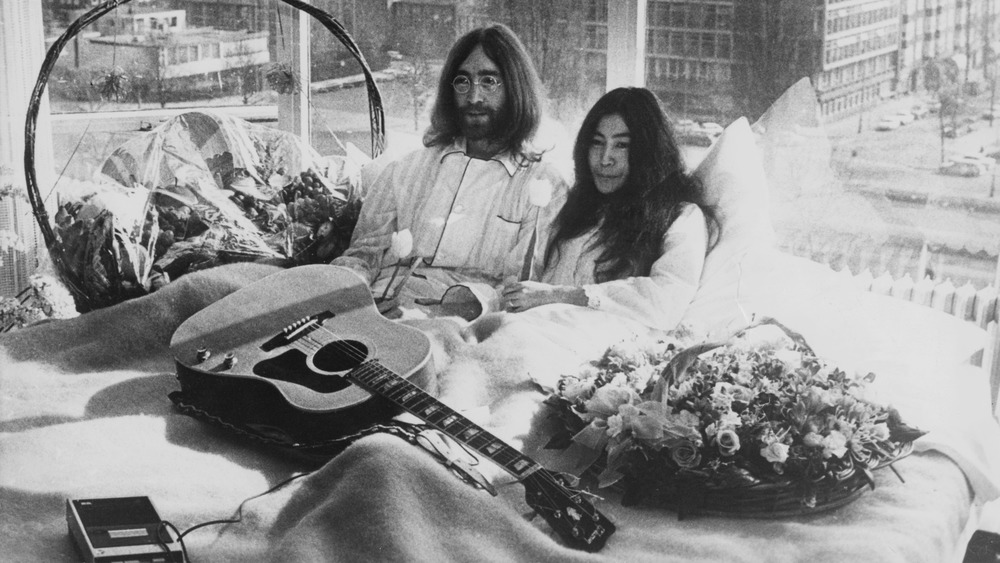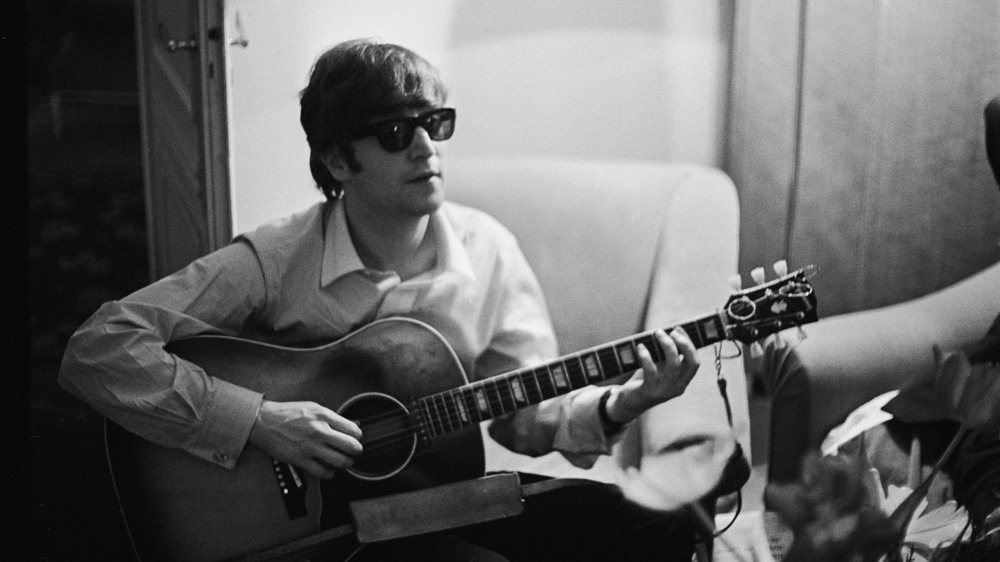Inside John Lennon's Issues With The FBI
John Lennon, the famous Beatle, became an international superstar in the 1960s, after the band's legendary debut performance on the The Ed Sullivan Show sparked worldwide Beatlemania frenzy. But Lennon wasn't only known for his music career. He was a dedicated anti-war activist, famously holding a two-week Bed-In for Peace on his honeymoon with his new wife, Yoko Ono. He explained in March 1969: "In Paris, the Vietnam peace talks have got about as far as sorting out the shape of the table they are going to sit round. Those talks have been going on for months. In one week in bed, we achieved a lot more," via Time.
By 1971, however, the Vietnam conflict still showed few signs of ending, and President Richard Nixon seemed more concerned with stopping Lennon's activism than stopping the war. Lennon became more involved with the anti-war movement. After moving to New York, Lennon became friendly with members of the anti-racist collective The White Panther Party. He agreed to participate in a rally to free John Sinclair, one of the group's founders, who was serving a 10-year sentence after getting caught selling two joints to undercover agents, per Ultimate Classic Rock.
The rally at the University of Michigan in Ann Arbor was attended by 15,000 people, per The New York Times, but unfortunately, the FBI was also in the audience, taking notes on the political radicals in the crowd. John Lennon made that list, and the FBI now had a target on him.
The INS threatened to deport Lennon
The FBI's interest in Lennon was driven by President Nixon's fear that the former Beatle's popularity and anti-war message would have a significant influence on the 1972 election. That year was the first election the lowered voting age would go into effect, and Nixon knew that Lennon had substantial sway over the young, predominantly anti-war 18-year-olds who would be voting for the first time.
To prevent Lennon from harming his re-election chances, Nixon had the FBI keep tabs, tapping Lennon's phone and gathering information about his plans. The government learned that Lennon was organizing a national concert tour, planning to make stops across the country to mobilize young people to get out and vote. Nixon wanted these plans shut down immediately.
To prevent Lennon from going forward, Nixon involved what was then the nation's Immigration and Naturalization Service (INS). In March, the INS sent a letter to John, threatening to terminate his visa and deport him from the country, using his 1968 marijuana possession conviction as an excuse. Their intimidation tactics worked. Lennon, fearing deportation and forced separation from his wife, who was embroiled in a contentious custody battle of her own, chose to cancel the tour.
Lennon didn't receive his green card until July of 1976. Although by then he was no longer considered a threat, the FBI had still amassed almost 300 pages of information on him, per Ultimate Classic Rock.

